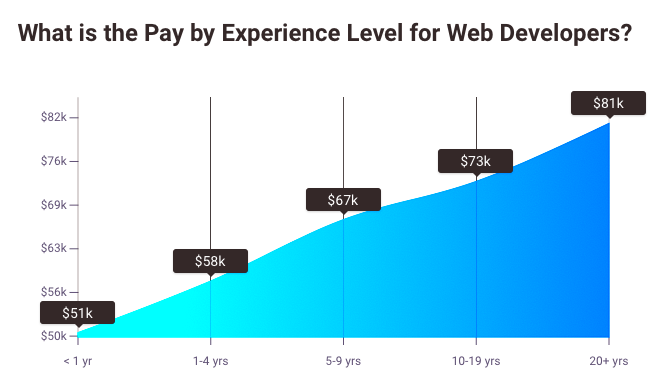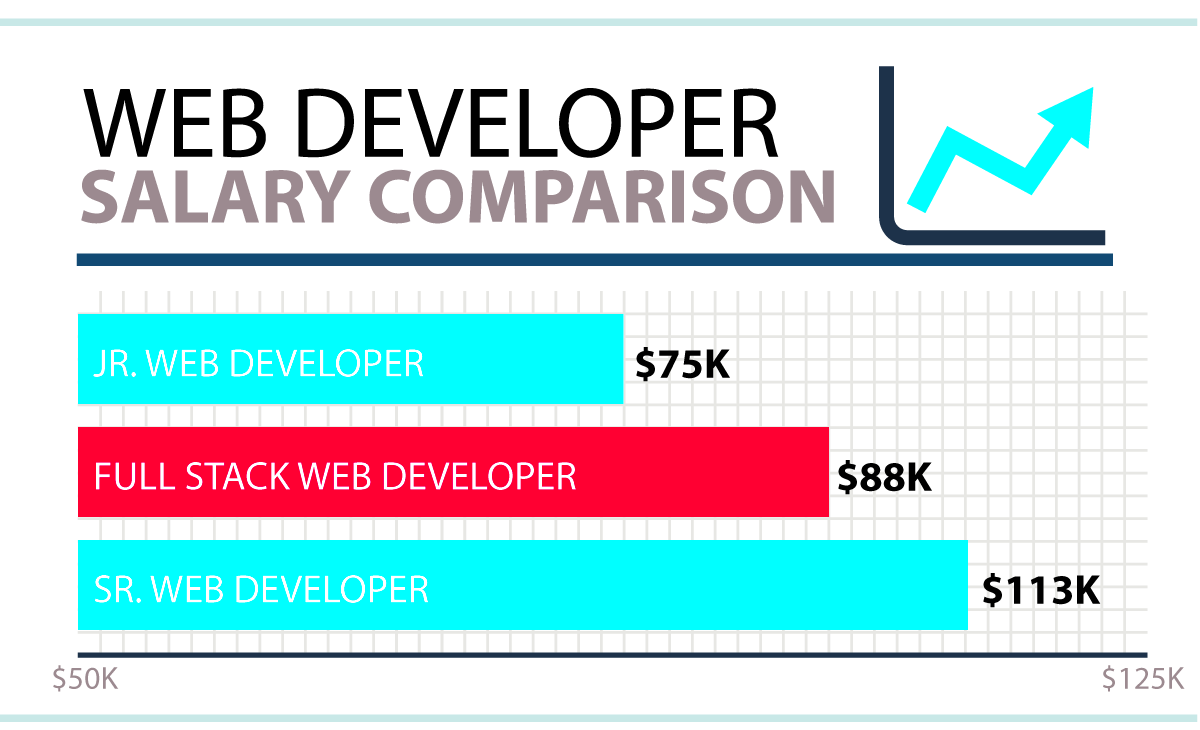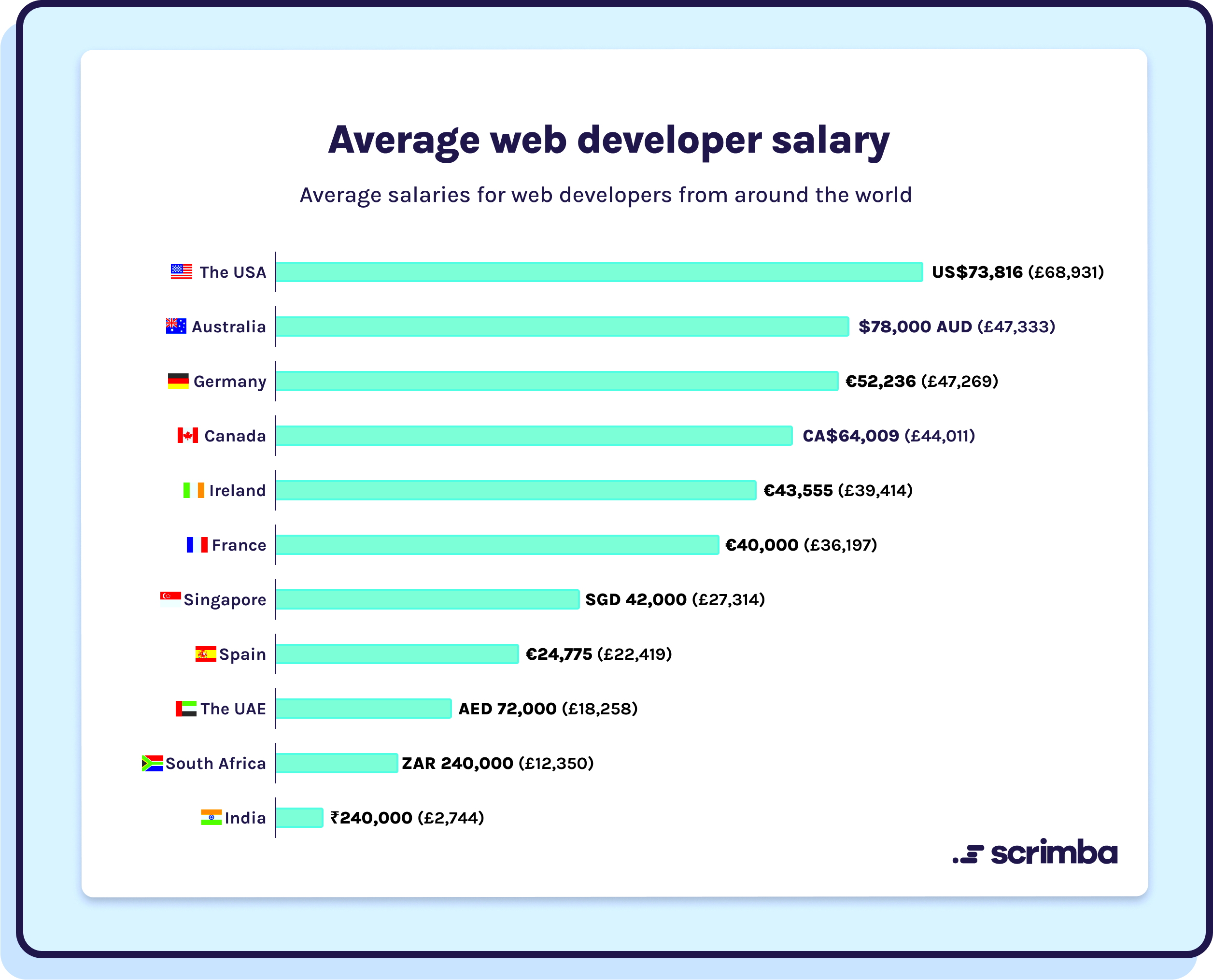Freelance web development is enjoyed by many as it gives an opportunity for individuals to build and maintain websites for different clients. Normally, freelancers take up independent tasks based on their proficiency and interests unlike permanent employees. This freedom may result in achieving personal fulfillment in one’s career as well as consistent revenue generation. Whether you are an entrepreneur who wants to improve your web presence or a technology lover thinking about working as a freelancer yourself, it is critical for you to understand the fundamental concepts of this industry.
Factors That Influence Charges of Freelance Web Developers

The amount of money that freelance web developers demand can fluctuates significantly due to certain reasons. Below are some important aspects which affects the cost:
- Experience Level: More experienced developers often charge higher rates due to their expertise.
- Project Complexity: Complex projects that require advanced skills will typically cost more.
- Location: Developers in high-cost areas may charge more to cover their living expenses.
- Client Type: Working with larger businesses often results in higher fees compared to small startups.
- Technological Skills: Proficiency in in-demand technologies can justify higher rates.
By grasping these elements, customers are capable of organizing practical financial plans and freelancers will have a reason to defend their prices.
Also Read This: How to Have Only 2 Packages on Fiverr
Common Pricing Models for Web Development Services

Web developers who are freelance usually employ different pricing mechanisms to decide their fees. Some of the models are:
| Pricing Model | Description |
|---|---|
| Hourly Rate | Charging clients based on the number of hours worked. |
| Fixed Price | A set fee agreed upon before starting the project, regardless of hours spent. |
| Retainer Fee | A regular payment for ongoing services over a specified period. |
| Value-Based Pricing | Fees based on the perceived value of the project to the client. |
The kind of pricing model you select should be based on your project’s objective and requirements from the client. There are different benefits for each pricing model, which is why freelancers must liaise well with clients in order to identify the most appropriate one.
Also Read This: How Long Before My Gig Shows Up in Fiverr Search?
Typical Earnings of Freelance Web Developers

The possibility for those working in freelance web development to make good money is there, but the amount they can earn may depend on several factors. Newbies and old hands alike need to understand the earning patterns of freelance web developers in order to set achievable financial targets. Experience, a niche area of specialization, and having more clients contribute immensely to the increase of earnings for most developers.
Freelance web developers typically earn:
- Entry-Level: $25 to $50 per hour
- Mid-Level: $50 to $100 per hour
- Experienced: $100 to $200 per hour or more
Additionally, there are various reasons like place, business need and scope of work that affect these rates. For instance, developers working in technology centers like San Francisco or New York tend to earn more compared to their counterparts from smaller towns. On the other hand, freelancers who establish a strong name for themselves with solid clientele can look forward to hefty salaries as they tackle larger and relatively more complicated assignments.
However, compared to earning potential, working hard as a freelancer in web development pays off more.
Also Read This: How to Send a Custom Offer on Fiverr
How Experience and Skills Affect Rates
To freelance web development specialists, how much you charge is determined by your background and skills. A lot of clients are ready to offer high pay for those developers who possess a vast knowledge and are skilled in specific areas.
Below are ways how your prices can be affected by various levels of experience:
- Entry-Level: Developers with less than two years of experience might struggle to command high rates. However, this is a great time to build a portfolio and gain valuable skills.
- Mid-Level: Those with two to five years of experience typically see an increase in their hourly rate as they have a more extensive portfolio and proven track record.
- Senior-Level: Developers with over five years of experience often charge premium rates, especially if they have expertise in high-demand areas like e-commerce or mobile app development.
Moreover, your Charges may also be influenced by your specific competencies such as understanding of popular programming languages or frameworks. Developer's who constantly learn and embrace new technologies tend to have superior income prospects.
Also Read This: How Do I Change My Fiverr Password?
Comparing Rates Across Different Platforms
Various platforms are there which hire freelance web developers for their services, each having its own fee system as well as a market. Getting to know about the comparison of charges on these platforms would actually help you to choose the best platform for your services.
| Platform | Typical Rate Range | Notes |
|---|---|---|
| Upwork | $20 - $150 per hour | Wide range, suitable for various skill levels. |
| Fiverr | $5 - $500 per project | Fixed-price projects; competitive rates can vary. |
| Freelancer | $15 - $100 per hour | Similar to Upwork; offers bidding system. |
| Toptal | $60 - $250 per hour | Strict vetting process; higher rates for top talent. |
To clarify this, you should factor in the fee structure of the platform, what kind of experience you have as well as the kinds of clients you wish to target when looking at them side by side. Because every single platform has its own set of advantages, it is important to evaluate them against one’s own intentions and likes.
Also Read This: What Tags Do I Use on Fiverr? A Complete Guide
Tips for Setting Your Rates as a Freelance Web Developer
As a freelance web developer, setting the correct rates is essential for your success. It’s not merely a matter of earning money; this is about appreciating your skills and experience. Below are some pointers to assist you in determining equitable and competitive pricing:
- Assess Your Skills: Take a moment to evaluate your skills and expertise. If you have specialized skills, such as experience with a particular programming language or framework, consider charging more.
- Research Industry Standards: Look at what other freelancers with similar experience and skills are charging. This can give you a ballpark figure to work with.
- Consider Your Location: If you're in a high-cost area, you may be able to charge more. Conversely, consider lower rates if you're in a more affordable location.
- Factor in Project Complexity: More complex projects require more time and effort, so adjust your rates accordingly. For instance, a simple website might be priced lower than a full-fledged e-commerce platform.
- Be Transparent with Clients: Explain your pricing structure and the value you bring to the table. Clients appreciate transparency and are more likely to respect your rates.
- Reassess Regularly: As you gain more experience and skills, revisit your rates. Don’t hesitate to raise them to reflect your growth in the industry.
Also Read This: Do You Need to Be a Professional to Use Fiverr?
FAQ About Freelance Web Developer Charges and Earnings
There are numerous inquiries that come about while talking about expenses as well as income in independent web improvement. The following are some of the frequent questions that can help in understanding:
- What should I charge as a beginner?
If you’re just starting, consider charging between $25 and $50 per hour as you build your portfolio. - How do I calculate my rates?
Consider your experience, skills, project complexity, and industry standards to determine your rate. - Should I charge hourly or per project?
It depends on the project. Hourly rates work well for ongoing work, while fixed prices are often better for defined projects. - Can I raise my rates after a project?
Yes, it’s common to increase rates as your skills and experience grow. Communicate this change to your clients ahead of time. - What if a client refuses to pay my rates?
It’s essential to stand firm on your worth. If a client is unwilling to pay, consider whether they are the right fit for your services.
Conclusion on Freelance Web Developer Earnings
For those who want to make schedule choices as well as reap heavy financial benefits then freelance web development provides a viable option. In order to come up with fair payment packages you have first of all to comprehend different elements affecting how much you earn including expertise level, knowledge set and numbers of clients. This means that you will need to continuously evaluate and update your fees depending on how far you have gone in your profession.
If you want to succeed and enjoy your career as a freelance, you need to follow the correct pricing approach and ensure that you are delivering quality work at all times. So go ahead, begin this journey with an open mind, keep abreast of what is happening in the industry, communicate effectively with your clients. This will serve two purposes; it will also increase your chances of making more money plus create long-time relationships among fellow freelancers.




